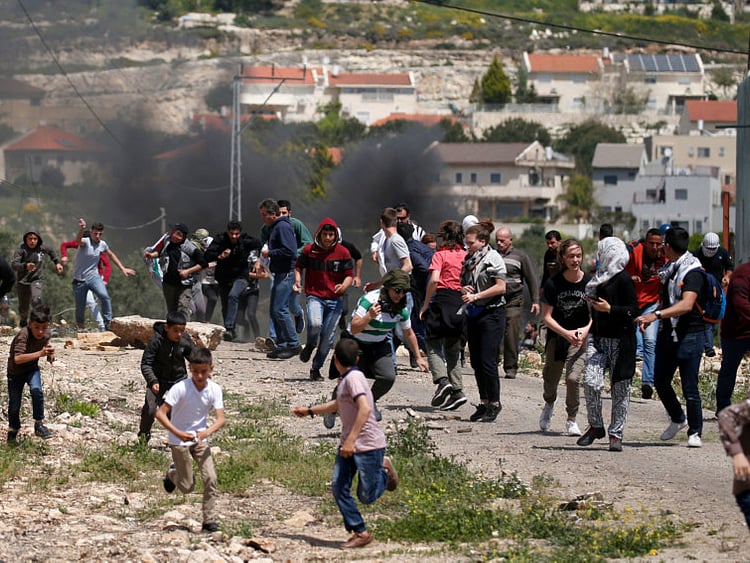Palestinian rights cannot be erased
Trump’s Middle East peace deal may upend a cornerstone of traditional US policy

So now we know. According to several reports in the American media, citing “people familiar with the main elements of the administration’s deal of the century”, the White House will roll out its long-anticipated and much-trumpeted peace plan as early as next month.
Palestinians are not holding their breath.
As comments from United States officials suggest, the plan will do away with the idea of Palestinian statehood as a starting point for negotiations, thus upending a cornerstone of both traditional US policy and international consensus on the subject. In fact, answering questions at a congressional committee two weeks ago, Secretary of State Mike Pompeo did not mince words. He said bluntly: “The two-state solution is a failed set of ideas not worth retreading”. So what is envisioned in the plan, it would appear, is a handout of “billions of dollars” to “make life better for Palestinians” in the West Bank an Gaza. in short, autonomy, yes, statehood, no.
And, you, Palestinians, that’s all there is on the table, so eat humble pie, take it on the chin and sign on the dotted line.
It would be laughable for anyone to imagine that Palestinians — shorn of an assertive place in the balance of power though they may be at this time in their history — would seriously consider such a deal as the terminus of their costly, century-long struggle for self-determination. You would be hard-pressed to find Palestinian leaders, even were they to be ragged or cajoled to the negotiating table, who would go along with a settlement so mockingly remote from, so insidiously contemptuous of, their own people’s aspirations.
These folks may have shown themselves to be incompetent, with dismal popularity ratings, but they are not quislings.
Look, Palestinians are not mendicants with begging bowls, content to live in autonomous Bantustans dependent on aid from foreign donors for their survival. They are a nation yearning to shape their own destiny according to the present bent of their own national sensibility. Just as, for example, we know of no society that doesn’t have music (not one), we know of no nation that does not oppose subjugation (not one). And how have Palestinians been victimised under Zionist subjugation!
The theme of Palestinian victimhood, stemming from the catastrophic dismemberment of Palestine in 1948, with its attendant diasporic experience for half the population of that nation, followed by the equally distressing experience of living under occupation after 1967 for the other half, is encoded in the Palestinian people’s repertoire of consciousness.
The former, known in Palestinian idiom as the Nakba, was an experience, painful an alienating, lived by a community in which the cultural, spiritual and social values of the homeland came into conflict with a new environment to which members of that community had to adapt as a strategy for survival.
Meanwhile, they guarded their historical memories and developed new myths about their country of origin — and myths, as anthropologists like the celebrated Joseph Campbell would attest, are among the subtlest and most direct languages of experience, being, as they are, a history of the unconscious.
Remembrance of these terror
At the core of the Nakba lies the remembrance of the greatest catastrophe that could befall a people: The destruction of one’s homeland, followed by the dread realisation that members of a now stateless nation are compelled to wander the earth, living in host states that placed them close to the door for easy eviction, forever invoking the fact that their ancient patrimony of plenty had perished.
The remembrance of these terror, of villages razed to the ground, of bodies thrown in the well at Deir Yassein, of pregnant women giving birth by the wayside during the refugee exodus, beats loud in the heart of those who survived them and those who came in the aftermath.
Then there’s the latter, the trauma of collective depression experienced by the second half, that live under occupation, a trauma characterised by a constantly mounting sense of helplessness, inadequacy and anxiety, where they feel trapped, where release from suffering is never at hand, and where there is no way around, through or out of one’s despair.
Just being Palestinian, in the diaspora as under occupation, gnaws away at you like a raw wound.
And we are to surrender that remembrance, delivered by our fallen patriots into our fragile trust — as it will be into our children’s — for “economic prosperity” in an autonomous Bantustan in our usurped homeland? Perish the thought! And, Washington, thanks, but no thanks.
Fawaz Turki is a journalist, lecturer and author based in Washington. He is the author of The Disinherited: Journal of a Palestinian Exile.
Sign up for the Daily Briefing
Get the latest news and updates straight to your inbox
Network Links
GN StoreDownload our app
© Al Nisr Publishing LLC 2026. All rights reserved.